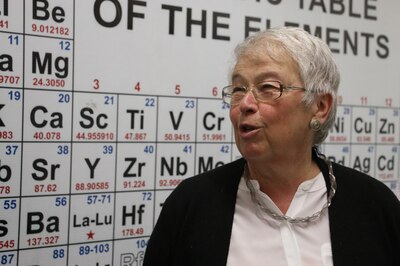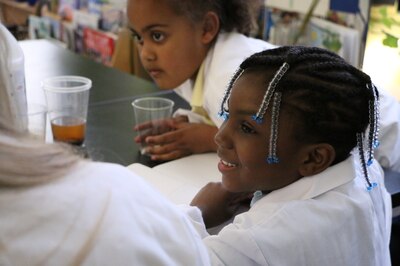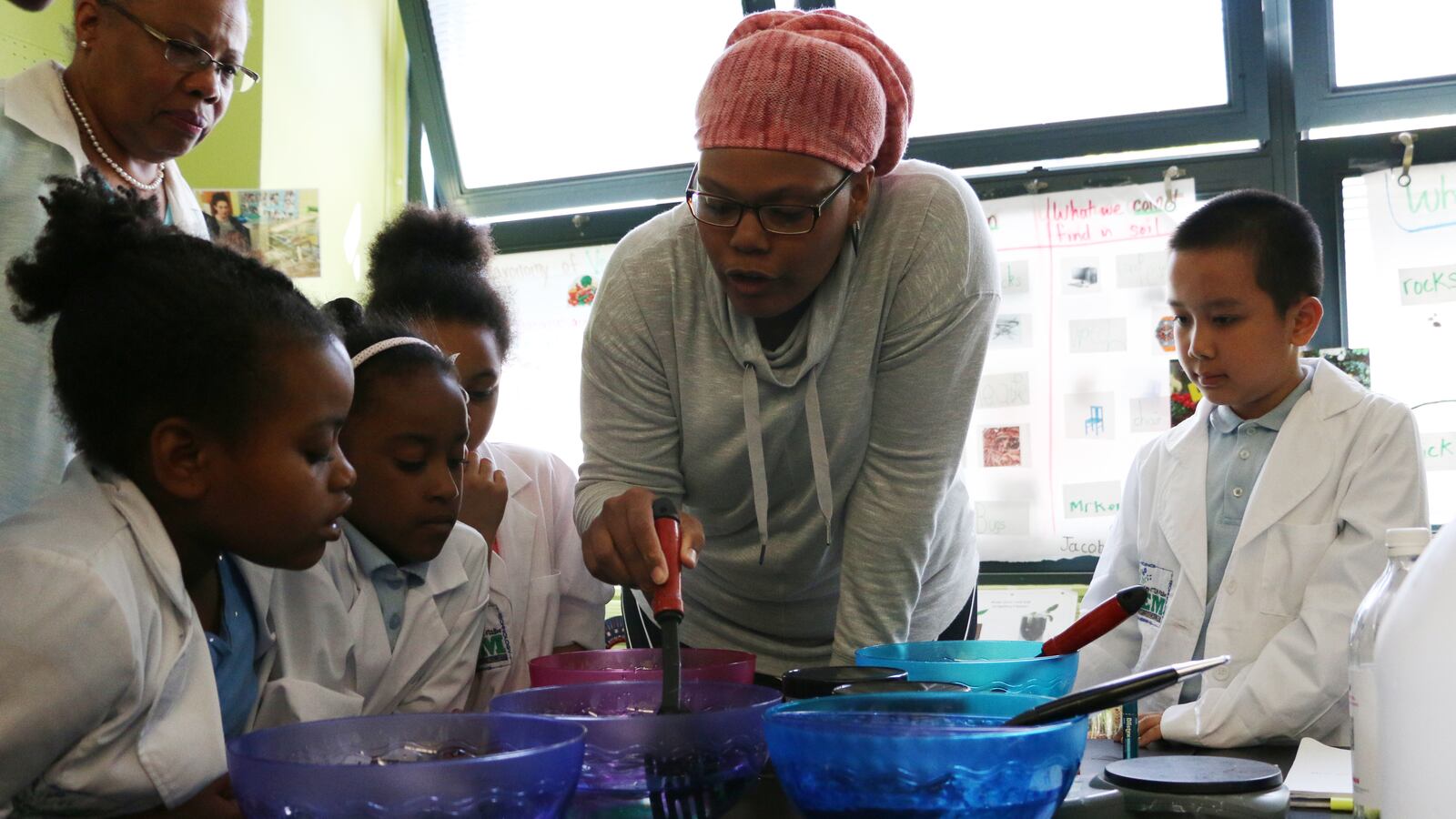The city is offering 1,200 students a new opportunity to participate in free summer programs focused on science, technology, engineering, and math, Chancellor Carmen Fariña announced Thursday.
The summer STEM program will be available to students finishing second, seventh, and ninth grades — with 400 seats per grade — and will be hosted at sites throughout the five boroughs. It fits in with Fariña’s focus on stopping summer learning loss and on a few grades that she sees as crucial to a student’s success, especially seventh.
For students to be ready for third grade, Fariña explained after visiting second- and fifth-grade classrooms working on projects at P.S. 307 in Brooklyn’s Vinegar Hill, they must be reading at grade level, which STEM projects can help with in an interactive way. The fifth-grade class Fariña visited, for example, was in the midst of giving small group presentations for inventions like a wristwatch that monitors the blood-sugar levels of diabetic patients.
Seventh grade, Fariña said, was crucial to engage students who often get “disenfranchised from school” at that age, start dropping out, and have “a lot of social-emotional issues.”
And in tenth grade, Fariña said the goal is to give the students a more technical STEM education so that they will “decide that they not only want to go to college, but many of them may want to major in these areas.”
The city will give priority to high-needs students with good school attendance, an interest in science, and parents that will support their participation, Fariña said. City officials said they would also encourage students attending schools in the city’s School Renewal turnaround program to apply, along with English language learners and students with disabilities.

The summer pilot program, which Fariña said could be extended as after-school programs next year, has a price tag of $2 million, which will be paid for with public funds and a $500,000 grant from Microsoft through the Fund for Public Schools.
The NYU Polytechnic School of Engineering is providing curriculums for the seventh- and tenth-grade programs, which include topics like robotics, urban development, and sustainability. The second-grade program curriculum, which combines STEM concepts with other elementary science topics, was developed and implemented by the Boston Museum of Science and New York Hall of Science.
Ben Esner, the director of K-12 STEM education for the NYU Polytechnic School, said the school is committed to training 500 city teachers to bring engineering and technology into their classrooms over the next five years. (The school led a series of STEM programs for students over the last two summers called STEM Now, which Fariña lent her support to last July.)

The summer program will be led by 65 city teachers, and 40 instructors from the NYU Polytechnic Center for K-12 Education will provide support.
Applications for the programs, which run for four weeks for second-graders and five weeks for seventh- and tenth-graders, will be available later this month.

